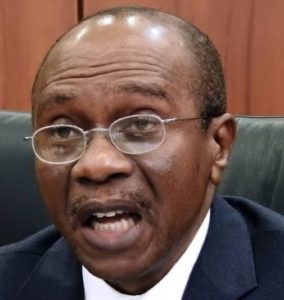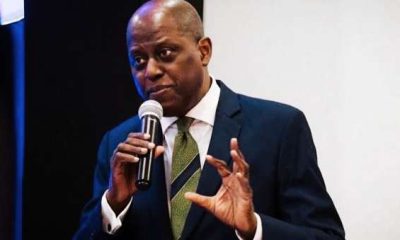Headlines
Experts justify MPC’s decision to hold rates for 10th consecutive times

FELIX OLOYEDE
The decision of the Monetary Policy Committee (MPC) of the Central Bank of Nigeria (CBN) to retain key benchmark rates was in line with consensus, financial experts have asserted.
The MPC at the end of its two-day meeting in Abuja, the first in 2018, maintained Monetary Policy Rate (MPR) at 14 per cent, Cash Reserve Ratio (CRR) at 22.5 per cent, Liquidity Ratio (LR) at 30 per cent and asymmetric corridor at +200 and -500 basis points on Wednesday.
Only a member of the Committee voted for a cut of benchmark rates as six of them gave their nod in support of retention, in line with financial analysts’ expectations.
“It is in line with consensus expectation and will not change market conditions materially. We expect yields to continue to moderate in line with the CBN’s guidance. Similarly, based effect factors would continue to moderate inflationary pressures to 11.0% by June. Afrinvest forecast for March is 13.4 per cent,” explained Robert Omotunde, head, Investment Research, Afrinvest West Africa.
He added that the equities market on the other hand will be driven by fundamental factors amid current market correction of seeming overvaluation which we expect will taper in the near term.
“It was largely expected given that the drop in inflation has been marginal and an immediate reduction in MPR was a threat to the recent moderation in inflation as well as FX stability, given the US Fed just raised their rate. An immediate reduction in our rates would make Naira assets less competitive, despite the stability in crude oil prices,” opined Andrew Esene, Associate, Corporate Finance – Futureview Financial Services Ltd.
He believes the 14 MPR appears to take care of government drive to simulate growth and the apex bank’s resolve to keep inflation in check. “Using other means, especially direct intervention in Agriculture and reduced local borrowing, we have seen a reduction in inflation and improved economic growth. However, i think both objectives have benefited more from improved oil prices and production than any other policy thrust from the CBN.”
Nigerian inflation rate has slowed down 12 consecutive months to 14.33 per cent in February, slower than January’s 15.13 per cent, making the organised private sector to push for interest rate cut.
The MPC was unable to meet in January due to senate’s decision not to screen President Buhari’s nominees to fill vacate Deputy Governors and MPC members positions over his refusal to relieve EFCC boss, Ibrahim Magu of this position.
However, the Senate reneged on its decision and last month approved the appointment of two CBN deputy governors and four members of the MPC.
“My take is that it is not significant except for the Corporate Treasurer. We should as a people meanwhile keep our eyes focused on the improvement we are witnessing with the economic indices while trusting and giving the benefit of the doubt to the monetary authorities that they are on top of their act to continue to promote the improvement in health of the national economy as we are currently enjoying,” claimed Dr. Boniface Chizea, Managing Consultant, BIC Consultancy Services Ltd.













